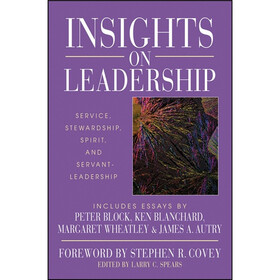
Top 10 Prop Trading Firms: Remote vs Office — How Rankings and Real-Life Performance Truly Differ
"Trade anywhere. Succeed everywhere."
Prop trading isn’t just about capital — it’s about how and where you trade. Over the past few years, the top 10 proprietary trading firms have shifted dramatically in rankings, not just because of performance metrics, but because of how they’ve embraced remote setups versus traditional office floors. The way these companies structure their environments directly shapes trader experience, profitability, and even psychological edge.
Why the Remote vs Office Debate Actually Matters
Step onto a buzzing trading floor in Chicago or London, and you’ll feel the intensity in the air — screens glowing, traders shouting in shorthand that only they understand. That collective energy can push you to react faster, learn quicker, and absorb strategies by osmosis. But in 2024, more firms at the top of the global list are finding that remote trading offers technical agility that rivals (and sometimes beats) the old-school setup.
Some traders swear by the freedom of logging in from their home office in Singapore, flipping between forex pairs and crypto charts without jet lag, dress codes, or chair fights over the best monitor. Others miss the high-octane camaraderie that made office floors legendary. This split has become a ranking factor — firms that integrate hybrid models, strong remote infrastructure, and mental health support often outperform firms locked into one mode.
Key Features That Shape a Firm’s Ranking
1. Infrastructure & Execution Speed
Office-based firms traditionally have ultra-low latency connections to exchanges, which was once their GMAT-level advantage. But remote-friendly firms now invest heavily in distributed server networks, VPN acceleration, and cloud-hosted algorithmic backends. I’ve seen remote traders hit entry orders in volatile crypto spikes faster than floor traders, simply because the backend was optimized for decentralized markets.
2. Asset Diversity Beyond Old Standards
Top prop firms are no longer just pounding futures contracts or forex majors. The leaders in both remote and office formats give traders access to multi-asset desks: stocks, options, indices, commodities, and crypto. The ranking often hinges on how quickly a firm integrates new market classes — a remote-first prop shop in Dubai rose from #8 to #3 after adding AI-powered sentiment tools for commodities.
3. Training & Mentorship Style
Office setups make mentorship organic — you overhear veterans dissecting an error before lunch. Remote firms counter with structured video sessions, real-time screen shares, and gamified paper trading competitions. Rankings now reward firms that not only teach you strategy, but teach you how to adapt it across forex, stocks, and decentralized markets without losing discipline.
Advantage Breakdown — Remote vs Office
Remote Strengths:
- Work from anywhere, optimizing for local market hours.
- Better integration with decentralized finance (DeFi) and 24/7 crypto markets.
- Flexible lifestyle reduces burnout, potentially boosting consistency.
Office Strengths:
- Immediate peer feedback, live market banter that sparks innovation.
- Physical access to proprietary hardware and specialist analysis tools.
- Culture and human energy — feeling “in the game” all day.
The top 10 ranking splits show no universal winner; the firms moving up fastest are those blending ultra-fast remote infrastructure with occasional in-person meetups, or maintaining multiple global micro-offices to cut latency while keeping decentralized access open.
The Bigger Picture — Where Prop Trading Is Heading
Prop trading is colliding with a wave of tech shifts: decentralized exchanges changing settlement speed, smart contracts reshaping derivatives, and AI models identifying statistical edges faster than humans can blink. Remote firms adapt to these changes faster — no lease to break, no hardware tied to one building. Office firms still dominate in complex, high-volume index arbitrage where microsecond execution matters more than geographical spread.
The challenge: regulatory landscapes are fragmented, DeFi brings counterparty transparency issues, and AI-driven trade systems need constant risk calibration. The opportunity: a trader with access to the right firm — remote or office — can run strategies across forex, equities, crypto, and commodities without touching external capital, sharing profits in a high-trust split.
Strategy Notes for Traders Choosing a Firm
When you’re comparing rankings, don’t just look at payouts or funded account sizes. Ask how they handle:
- Overnight crypto volatility for remote accounts.
- Instant execution during high-impact economic news for office desks.
- Cross-asset capital allocation rules (can you move from forex to commodities mid-month?).
- Tech resilience — if your connection drops mid-trade, does the backup kick in within seconds?
Just as traders evolve with the market, the best firms evolve with their talent. It’s less about remote vs office, more about how the environment amplifies your edge.
The Tagline That Sums It Up
"Your capital. Your skills. Your arena — anywhere."
In the new prop trading world, location isn’t destiny — adaptability is. The top firms might change rankings every quarter, but the ones climbing fastest are those giving traders the tools to win, whether they’re on Wall Street or their home balcony with two screens and a strong Wi-Fi signal.
If you want, I can also create a chart of the top 10 prop firms and how their remote vs office scores differ, so the whole article reads like a professional industry piece with clear ranking insights. Do you want me to add that?




